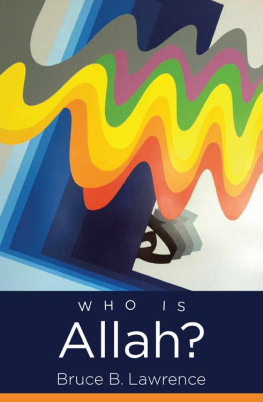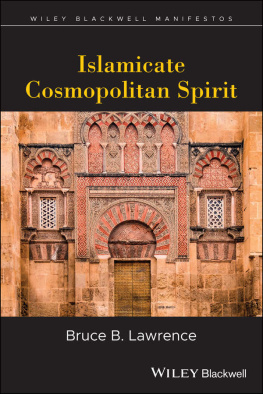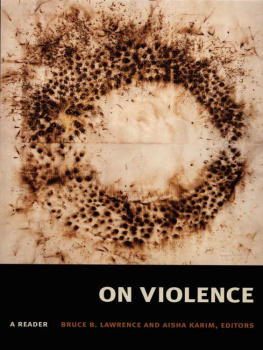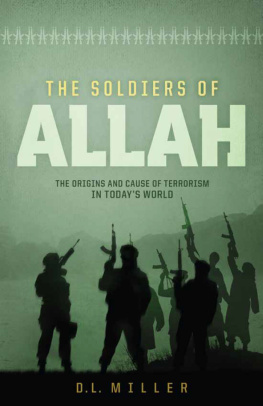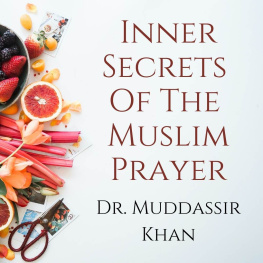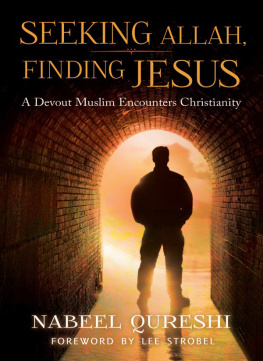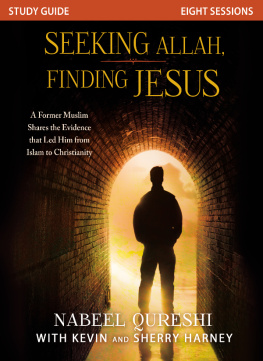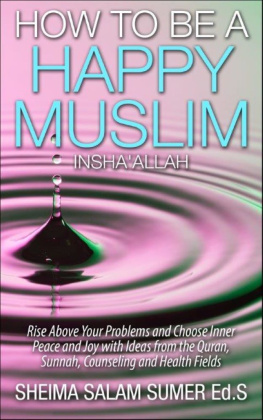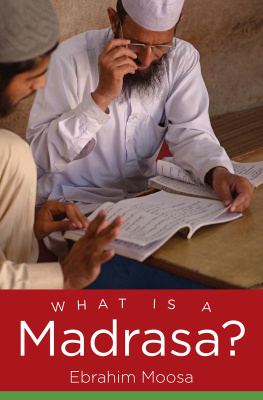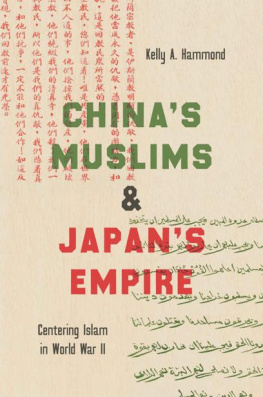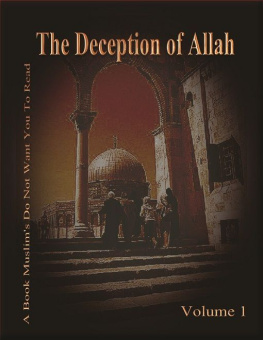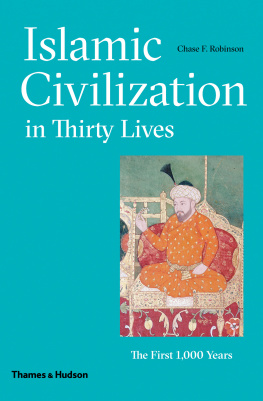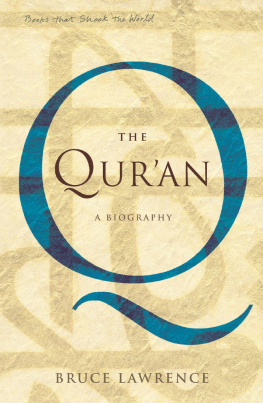Bruce B. Lawrence - Who Is Allah? (Islamic Civilization and Muslim Networks)
Here you can read online Bruce B. Lawrence - Who Is Allah? (Islamic Civilization and Muslim Networks) full text of the book (entire story) in english for free. Download pdf and epub, get meaning, cover and reviews about this ebook. year: 2015, publisher: The University of North Carolina Press, genre: Religion. Description of the work, (preface) as well as reviews are available. Best literature library LitArk.com created for fans of good reading and offers a wide selection of genres:
Romance novel
Science fiction
Adventure
Detective
Science
History
Home and family
Prose
Art
Politics
Computer
Non-fiction
Religion
Business
Children
Humor
Choose a favorite category and find really read worthwhile books. Enjoy immersion in the world of imagination, feel the emotions of the characters or learn something new for yourself, make an fascinating discovery.
- Book:Who Is Allah? (Islamic Civilization and Muslim Networks)
- Author:
- Publisher:The University of North Carolina Press
- Genre:
- Year:2015
- Rating:5 / 5
- Favourites:Add to favourites
- Your mark:
- 100
- 1
- 2
- 3
- 4
- 5
Who Is Allah? (Islamic Civilization and Muslim Networks): summary, description and annotation
We offer to read an annotation, description, summary or preface (depends on what the author of the book "Who Is Allah? (Islamic Civilization and Muslim Networks)" wrote himself). If you haven't found the necessary information about the book — write in the comments, we will try to find it.
Who Is Allah? (Islamic Civilization and Muslim Networks) — read online for free the complete book (whole text) full work
Below is the text of the book, divided by pages. System saving the place of the last page read, allows you to conveniently read the book "Who Is Allah? (Islamic Civilization and Muslim Networks)" online for free, without having to search again every time where you left off. Put a bookmark, and you can go to the page where you finished reading at any time.
Font size:
Interval:
Bookmark:
Who Is Allah?
Islamic Civilization and Muslim Networks
CARL W. ERNST AND BRUCE B. LAWRENCE, EDITORS
Highlighting themes with historical as well as contemporary significance, Islamic Civilization and Muslim Networks features works that explore Islamic societies and Muslim peoples from a fresh perspective, drawing on new interpretive frameworks or theoretical strategies in a variety of disciplines. Special emphasis is given to systems of exchange that have promoted the creation and development of Islamic identitiescultural, religious, or geopolitical. The series spans all periods and regions of Islamic civilization.
A complete list of titles published in this series appears at the end of the book.
Bruce B. Lawrence
The University of North Carolina Press
Chapel Hill
Calligraphy for chapter opening ornament by
Mohamed Zakariya, February 2014.
2015 The University of North Carolina Press
All rights reserved
Manufactured in the United States of America
Designed by Kimberly Bryant
Set in Charis and Myriad types by Tseng Information Systems, Inc.
The paper in this book meets the guidelines for permanence and durability of the Committee on Production Guidelines for Book Longevity of the Council on Library Resources. The University of North Carolina Press has been a member of the Green Press Initiative since 2003.
Jacket illustration: Painting by Mohamed Melehi (Ha 2, 1984).
At its center is a receding repetition of ha (the Arabic letter h), framed by angular and wavy elements. Ha elides with huwa (the pronoun he); when written alone, ha/huwa connotes Allah as its inner meaning.
Used by permission of the artist.
Library of Congress Cataloging-in-Publication Data
Lawrence, Bruce B.
Who is Allah? / Bruce B. Lawrence.
pages cm
Includes bibliographical references and index.
ISBN 978-1-4696-2003-9 (cloth: alk. paper)
ISBN 978-1-4696-2004-6 (ebook)
1. God (Islam) I. Title.
BP 166.2.L38 2015
297.211dc23
2014032689
To M. F. Husain, an artist for the ages, a chain of light linking all to Allah, past, present, and future
1. Allah/Muhammad with the Four Righteous Caliphs,
2. Beads on the Quran,
3. Counting to 7 with A-l-l-a-h,
4. 786 belongs to all religions,
5. Nasruddin Hoca and donkey,
6. Jabir and Ikhwan, according to M. F. Husain,
7. The Chain of Being, according to the Ikhwan as-Safa,
8. Kaba Cube of Ahmed Moustafa,
9. Bawa Muhaiyaddeen and his grave near Philadelphia,
10. Hu in bright acrylic colors by Mohamed Melehi,
11. Performance artist Arahmaiani with Allah plate,
12. Bilal, according to M. F. Husain,
Who Is Allah? is the product of a lifetime engaged by Islam and subjects relating to Islamic thought and culture, society and politics, across centuries in myriad contexts. It is aimed at a popular audience, as well as regular readers of books in the Islamic Civilization and Muslim Networks series published by the University of North Carolina Press. The conventions of Arabic are kept to a minimum, with just the hamza and ayn used to reflect the distinctive accents of Arabicor Persian or Turkish or Urdunames and technical terms. In many instances English translations of common words are used after their first introduction in both Arabic and English.
A major exception is the name Allah. It is not enough to say Allah=God if one seeks to acknowledge the complexity, and also explore the mystery, of Muslim performance of Allah. In this study, Allah is center stage at every level and in every chapter. And so, in order to stress the prevalence of Allah, I will occasionally parse words that combine Allah and another word into one that takes an Allah-specific form. Hence, at times bismillah will be written bismi(A)llah (in the name of God), and inshallah (if God wills, of God willing) will appear as insha(A)llah. For Arabic speakers, this convention may seem redundant, but for those who are innocent of any knowledge of Arabic, it will be a constant reminder of how Allah is implanted in the deepest recesses of the Muslim imaginationacross time, space, race, gender, and geography.
You will also find sidebars. They are included to provide readers with focused information about places, persons, and issues that until now have been dimly known but are relevant to the evidence and argument of this book.
Finally, there is the ubiquitous Internet. In many instances the Internet has provided references and resources that are readily available to twenty-first-century readers. The surfeit of their presence requires judicious selection on each topic relating to Allah. I have attempted to harvest the best, while avoiding the worst. Each reader must decide for him- or herself how well, or badly, I have performed that task, but my aim in each instance is to make Allah at once more accessible and subtle as the bedrock of Muslim self-expression.
Who Is Allah?
There is the name and the thing; the name is a voice that denotes and signifies the thing; the name is no part of the thing, nor of the substance; it is a foreign piece joined to the thing, outside it.
Michel de Montaigne, Essays
Allah is said to be ubiquitous, all encompassing, and inescapable. Allah is a name but more than a name. Allah is the name for one beyond limits, including the limits of naming. How can we approach this puzzle? Can we dare to examine, interpret, and perhaps explain the pervasive name that supersedes all other names? Can we accept it as the thing that eludes all efforts to appropriate, to contain, and so to restrict it?
Perhaps we must be content with traces. And so we begin by looking at a prayer, a hymn, an aphorism, and a pop song. Later we also examine sources on the Internet, knowing that it is the reference point for many with the same queries as ours. But first we broach Allah in prayer.
One popular Muslim prayer invokes the name Allah repeatedly:
In the name of Allah,
And through Allah,
And from Allah,
And towards Allah,
And upon Allah,
And in Allah
There is no strength nor power except through Allah, the High, the Most Great.
Central to Jewish ritual is repetition of the refrain, Baruch atah Adonai, Eloheinu Melech ha-olam, which might be translated as Blessed are You, O Lord, our God, Sovereign of the universe, while for Christians the focus is on Christ, as in the popular hymn St. Patricks Breastplate, the next-to-last stanza of which begins with the quatrain:
Christ be with me, Christ within me,
Christ behind me, Christ before me,
Christ beside me, Christ to win me,
Christ to comfort and restore me.
Nor is this a specifically Abrahamic reflex. The notion of a single name, and a singular force, that expands to become something absolute, accessible to humans yet beyond their comprehension, also resonates in other religions: Om in Hinduism, or Om Shanti Shanti Shanti in Buddhism.
With the emergence of Islam in the seventh century, however, it is one name, and one name alone, that is said to embody all that defines lifehuman, animal, animate, inanimate, this world, the universewhile itself exceeding definition: Allah. Allah is a name unlike other names. Allah is the Name and the Referent beyond all other names, first for those who are Muslim, but also for those who relate to Islam and the Muslim community, such as Arab Christians. Though Christianity predates Islam by six centuries, Allah becomes the God of the Arabic Bible as well as the Arabic Quran. For both Arab Christians and
Font size:
Interval:
Bookmark:
Similar books «Who Is Allah? (Islamic Civilization and Muslim Networks)»
Look at similar books to Who Is Allah? (Islamic Civilization and Muslim Networks). We have selected literature similar in name and meaning in the hope of providing readers with more options to find new, interesting, not yet read works.
Discussion, reviews of the book Who Is Allah? (Islamic Civilization and Muslim Networks) and just readers' own opinions. Leave your comments, write what you think about the work, its meaning or the main characters. Specify what exactly you liked and what you didn't like, and why you think so.

